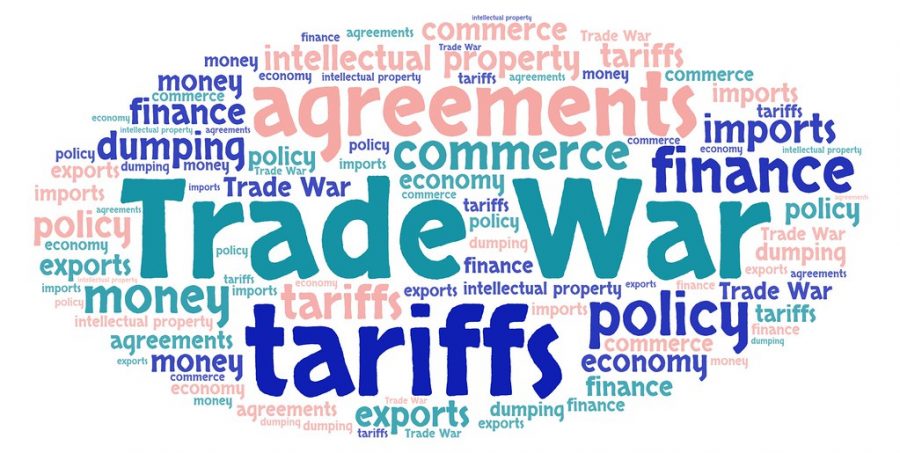The US-China Trade War
These are many of the issues revolving around the trade war between the United States and China.
The US-China trade war began in January 2018, when President Trump announced new sets of tariffs on Chinese goods being imported into the US. His reasoning for this was that China was profiting off of the US because of unfair trade conditions. Although many disagree with Trump’s use of tariffs, we all must agree that the US was trading with China on unequal ground. According to the Peterson Institute for International Economics, the average Chinese tariff on American exports was 8% whereas the average American tariff on Chinese exports was 3.1%. Seeing as how China is the US’s main trading partner, this seemingly small imbalance has compounded over the years. In 2018, the US traded $659.8 billion worth of goods with China\; the US exported $120.3 billion worth of goods to China and imported $419.2 billion worth of Chinese goods. This means that the US had a trade deficit of $298.8 billion with China in 2018 when it comes to the value of consumer and capital goods. Now, if tariffs are taken into consideration then that means that US businesses would have had to drop the prices of their goods by an average of 8% in order to compete in the Chinese market. Whereas Chinese businesses would have only had to drop their prices by an average of 3.1% in order to compete in the US market. This means that US businesses had a potential collective loss of $9.6 billion. in revenue, and Chinese businesses had a potential collective loss of $12.9 billion in revenue.
However, notice how I said “potential loss.” If these businesses are forced to lower their prices in order to compete in a foreign market, they might have done so to a point where their prices were much more competitive than those of native businesses. These relatively low tariffs could have resulted in more units of goods being sold, which could have made up for the potential loss of profit. The higher the tariff, the less likely these low prices become. After all, if the US really wanted to cut trade with China, wouldn’t we just make the tariffs around 50% to even 100%. If tariffs were this high, then there is no way that foreign businesses would even bother with the US market. However, the only people that would support tariffs this high would be isolationists, and chances are these tariffs would destroy the US economy. Just a side note, China exported 3.48 times as many goods in terms of value when compared to the US. In terms of value lost due to tariffs, China had a potential loss that is only 1.34 times that of the US. While Trump was right about the unequal trade conditions, what about his emphasis on the trade deficit? Many economists agree with Trump, and many disagree. Ultimately, the fact of whether or not this trade deficit is really hurting the US economy is mixed.
How have Trump’s tariffs affected US businesses? Overall, the effect has not been good. The industry hit hardest by the trade war is definitely the soybean industry which lost an astounding amount of revenue when China refused to import large amounts of the crop. This led to many farmers being forced to accept government subsidies in order to stay afloat for the short term. However, China has showed willingness to negotiate terms of trade. So, perhaps this trade war will hurt in the short term, but benefit us in the long run.

Braeden is a 3 year member of the Crimsonian Staff. He is an AP student and enjoys reading about philosophy, history, and science.






